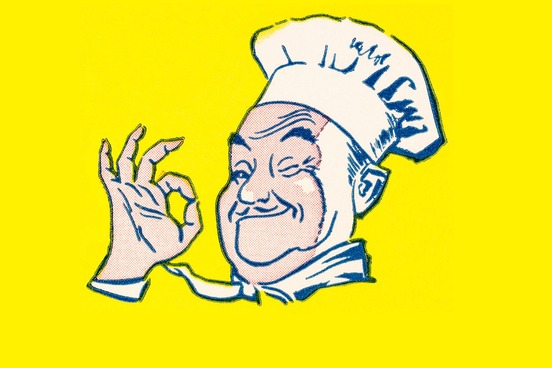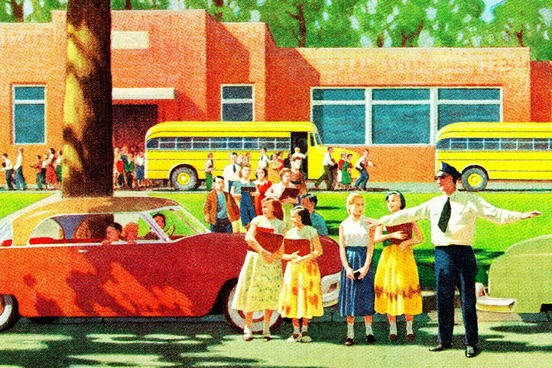
Gruntle
What It Means
: to put in a good humor
How It's Used
“It was a crime of passion, Jan, not a disgruntled employee. Everyone here is extremely gruntled." — Michael Schur, The Office: The Negotiation (Season 3, episode 18), April 5, 2007
Word Facts
The verb disgruntle, meaning "to make ill-humored or discontented," has the familiar prefix dis-, but it isn't the dis- we know. Rather than meaning "to do the opposite of," the dis- in disgruntle is a rare version of the prefix that acts simply as an intensifier.
Disgruntle, which dates to the late 1600s, comes from this intensifying prefix and a now-archaic word gruntle, meaning "to grumble." The early 20th century writer who humorously coined the new gruntle by removing the dis- to form an antonym of disgruntle likely knew nothing about the original gruntle. And neither do most people today who choose the word gruntle (often humorously) to mean "to make happy."

Underwhelm
What It Means
: to fail to impress or stimulate
How It's Used
“I had hoped this storm would underwhelm us. It did not. It met our expectations and even overwhelmed us.” — North Carolina Gov. Pat McCrory, February 14, 2014
Word Facts
To whelm is to cover or engulf something completely, usually with disastrous effect. That makes it easy to understand how overwhelm could have developed its “overpower” senses. Whelm and overwhelm are both more than 600 years old, but underwhelm has been failing to impress a mere 60-odd years.

Committal
What It Means
: the act of putting someone's body in a grave; also: commitment
How It's Used
“Burial will take place following the committal service.” — U.S. Department of Veterans’ Affairs Web site
Word Facts
Be warned! Removing a negative prefix from a word does not always yield the word’s antonym. While noncommittal is an adjective meaning, “not telling or showing what you think about something," committal is a noun referring to burial services.

Flappable
What It Means
: easily upset
How It's Used
"I'm not as flappable as I used to be. I expect crisis in the pursuit of the product." — Marti Nixon, The Hollywood Reporter, April 30, 2014
Word Facts
Although flappable can describe a bird’s wings or an animal’s ears, the sense in the example traces to the flap that means “a state of excitement or agitation; a tizzy.”
The -able forms of the word are relatively recent coinages: unflappable first appeared in print in 1954; flappable appeared fourteen years later, in 1968.

Corrigible
What It Means
: capable of being repaired or set right
How It's Used
"One of the most pleasant things about writing, indeed, is that spontaneity is corrigible: something that seems like a good idea on the spur of the moment, as one's fingers are banging out a paragraph, can be quietly got rid of in the sober tranquillity of revision, when it becomes clear that it's rubbish." — Stephen Poole, New Statesman, July 8, 2014
Word Facts
Incorrigible is, at more than 600 years old, both an older and more common adjective: It can be synonymous with delinquent, unruly, or inveterate, as in “an incorrigible sweet tooth.”
Though less common and slightly younger at only 500 or so years old, corrigible has a history of its own. Shakespeare used the word to mean “having the power to correct”—a meaning that is now obsolete. When corrigible is used nowadays, it typically describes something that can be corrected—which is, in fact, its original meaning.

Wieldy
What It Means
: capable of being wielded easily; manageable
How It's Used
"Some people like smaller phones, as they are more wieldy. Bigger phones, however, make reading easier." — Brian Boyer, Daily Record (Wooster, Ohio), August 10, 2014
Word Facts
Although wieldy is no longer as common as unwieldy, wieldy dates back to the 14th century–about a century before unwieldy first appeared in print.
Both words stem from wield, one of the oldest words in English: its ancestors meant “to control; to rule." The word wieldy first meant “strong,” and unwieldy has a corresponding now-obsolete sense of “feeble, infirm.”
The meanings of both wieldy and unwieldy have managed to shift over the centuries. Nowadays, both words are used to describe degrees of manageability.

Kempt
What It Means
: neatly kept
How It's Used
“The Liberty Way was our student code of conduct which outlined the rules for everything from our campus dress code (tucked shirts, no jeans, men's hair kempt above the ears) to our moral code” — Brandon Ambrosino, The Atlantic, April 4, 2013
Word Facts
Unkempt has been around since the 14th century, but kempt wasn’t spotted in print until 1929. Did you notice that the example refers to neatly kept hair? In fact, both kempt and unkempt have an ancestor in the Middle English verb meaning “to comb.”

Couth
What It Means
: sophisticated, polished
How It's Used
"You could try being an even more gracious hostess and accept that some guests are not as couth as they could be." — Amy Dickinson, Chicago Tribune, March 19, 2014
Word Facts
Uncouth is another one of those words that rank among the oldest words in English, while its opposite dates only to 1896.
Uncouth originally meant “not known or familiar,” the word's second part coming from an Old English word meaning "familiar, known." That sense of uncouth is now itself uncouth (to use the archaic meaning).
Both couth and uncouth now describe a level of cultivation or sophistication. Couth has since the middle of the 20th century also functioned as a noun meaning "polish, refinement," as in "one lacking couth."

Ruly
What It Means
: obedient, orderly
How It's Used
"My hair was a tad unruly when I was younger, is what I’m saying. Now it’s is no longer unruly. My hair is ruly, in fact, and I get it cut at least once a month." — Mike Pound, Joplin Globe (Missouri), June 22, 2013
Word Facts
In Middle English, something or someone considered ruly or reuly was amenable to being ruled. Ruly has remained rare over the centuries, while the spread of unruly has been —true to its definition—relatively unchecked.

Pervious
What It Means
: accessible; permeable
How It's Used
“Pervious paving allows water to infiltrate into layers of limestone placed below the paving and then into soil and groundwater below.”—Natural Resources Conservation Service Web site
Word Facts
The per- in pervious comes from the Latin word for “through.” Vious has an ancestor in the Latin via, meaning “way”: something pervious has a way through.
Impervious can be used either literally (“impervious to rain”) or figuratively (“impervious to criticism”), while the most common use of pervious, as in the example above, is decidedly concrete.





